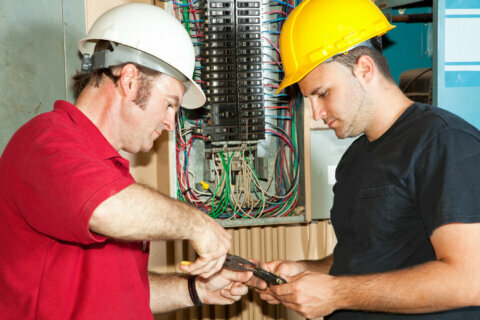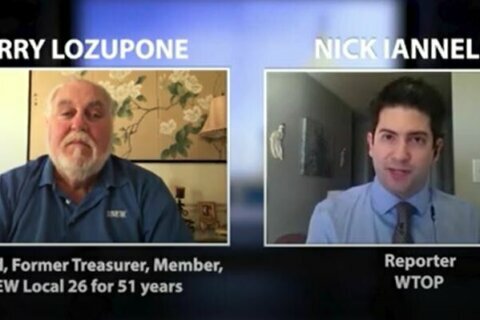Contractors in the electricity industry understand that having a workforce with a strong skillset is a critical component when it comes to running a safe and successful business.
That is why IBEW Local 26, which represents electrical workers in D.C., Maryland and Virginia, has a tried-and-true system to train workers and give them years of world-class experience, building their knowledge from the ground up so contractors that partner with the union receive the best possible product.
“We have a highly-skilled and trained workforce,” said Joe Dabbs, the financial secretary for IBEW Local 26.
Using state-of-the-art training centers in Maryland and Virginia, IBEW Local 26 offers apprenticeship programs taught by experienced instructors.
“You can see the employees grow and over the years you watch them rise up through the trade,” said Dabbs. “It’s a great process to watch.”
The programs last for five years, ensuring that members perform the highest quality work safely and efficiently. They are more rigid and thorough than state mandates require, consisting of classroom and on-the-job training.
Apprentices must attend 900 hours of classroom-related instruction and 8,000 hours of on-the-job training.
“We can take a person who knows nothing about the craft and after five years of training they’ll be prepared for anything,” said Dabbs. “They’ll be prepared for a career for life.”
Journeymen electricians can continue upgrading their skills through advanced classes that incorporate the latest technological developments.
No job too large or small
In addition to the broad and refined skillset that IBEW Local 26 brings to the table for contractors, the union offers a flexible workforce, ready to partner with any contractor whether they are a one-man shop or a business that employs hundreds.
IBEW Local 26 has roughly 11,000 men and women ready to work.
Nationwide, the IBEW has hundreds of thousands of members available in every state.
“We can provide manpower in 24 hours notice,” Dabbs said. “It doesn’t matter whether they need one person or a couple hundred people.”
And IBEW Local 26 stays “in the loop,” keeping a close eye on any licensing, zoning and permitting changes along with all of the regulations and requirements across the D.C. metro region.
“We not only stay abreast of legislative and regulatory changes, we actively lobby for new laws and ordinances that make our industry safer and provide more opportunities for responsible contractors to get work in both the public and private sector,” as noted on the union’s website.
IBEW Local 26 can also provide a strategic marketing plan for contractors, lifting up their profile through the help of widely circulated television and radio advertisements and earned media events such as community service projects.
Union provides benefits too
Contractors that partner with IBEW Local 26 don’t have to worry about offering a benefit package to their electrical workers because the union is responsible for that.
Whether it’s retirement plans or healthcare benefits, the union and the National Electrical Contractors Association take care of it, giving contractors comfort in knowing that they can take a back seat and rely on a dedicated team.
“The contractor is free to only focus on the business part of it,” said Dabbs. “They can grow their business and provide the best service.”
As for salaries, contractors are given a schedule of rates for trainees through general foreman positions.
Wage packages are negotiated on a 3-year contract basis between IBEW Local 26 and the National Electrical Contractors Association, meaning contractors don’t have the burden of negotiating different rates and raises for every individual employee.
Philanthropic efforts
While IBEW Local 26 focuses on its work in the electrical industry most of the time, contractors are pleased to learn that the union frequently branches out to participate in activities meant to help people in the D.C. metro area.
It utilizes resources, training and expertise to improve conditions in the community, building relationships with elected leaders, administrative agency heads, faith communities, business leaders and nonprofits.
“If there are people in a community that need help, we’ll come in and do the electrical work for them,” said Dabbs. “We’re out there and connected to the community. We’re not just a labor organization.”







